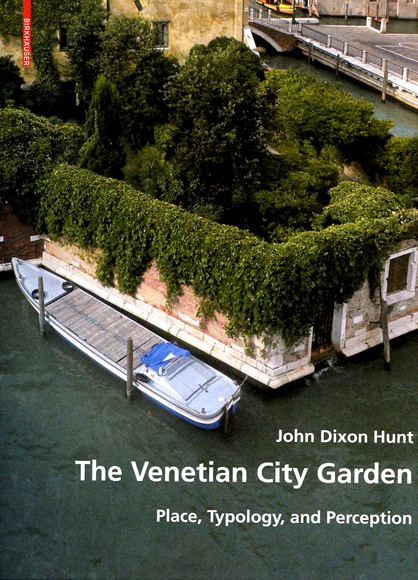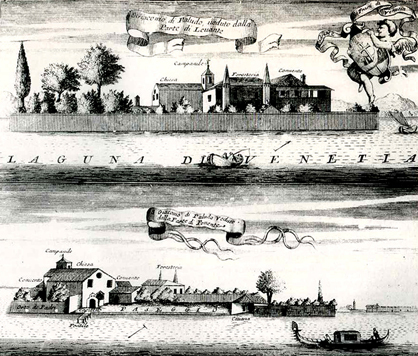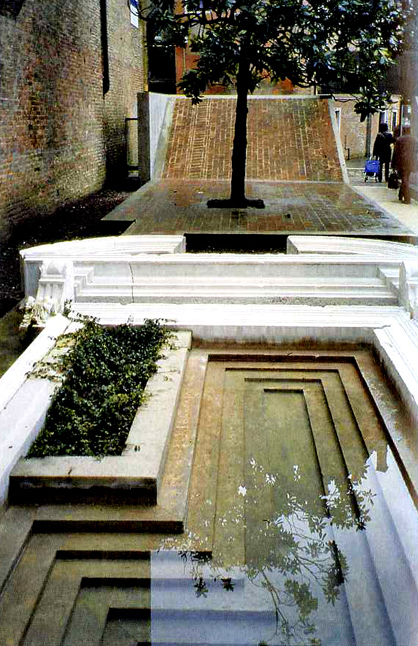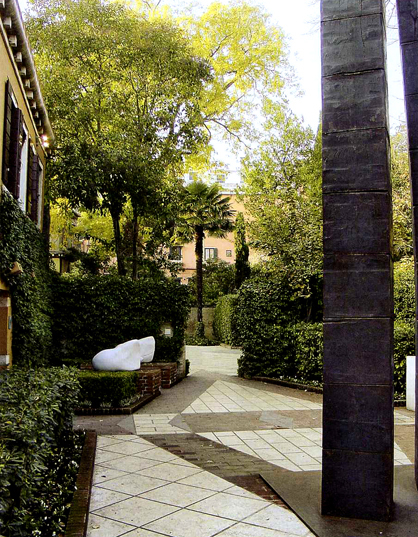The Venetian City Garden
Place, Typology and Perception
-
Gardens in Venice? In view of the fact that Venice immediately evokes associations with lagoons, canals, palazzi and small, densely built-up areas of land surrounded by water, this sounds like something of a contradiction. And yet these urban gardens, which are often secluded from view, are a significant part of urban typology, as John Dixon Hunt demonstrates in his painstaking historical analysis. He has tracked down the city's gardens like a detective, examining their design, function, topology, ecology and even mythology.
 Cover
Cover -
In addition to countless old engravings showing views of the city, his research also covers extracts from paintings. The Tiepolo painting entitled "Departure of the Gondola", for example, makes it very clear that many a garden was also used as a green and very private "ridotto" in the open air for elaborate festivities with costumes and music. Engravings by Coronelli and Bordoni, on the other hand, show peaceful and geometrically strict cloister gardens.
 Engraving by Coronelli “Isolario dell’Atlante Veneto” from 1696
Engraving by Coronelli “Isolario dell’Atlante Veneto” from 1696 -
Often Dixon Hunt discovers only fragments of literally 'sunken' gardens, until he arrives in the twentieth century at the gardens of Carlo Scarpa and Peggy Guggenheim. The book ends with a view of the Paradise Garden created by Gustafson and Porter for the 2008 Biennale.
 Entrance to the Courtyard of the Faculty of Architecture by Carlo Scarpa
Entrance to the Courtyard of the Faculty of Architecture by Carlo Scarpa -
 The Peggy Guggenheim Collection sculptural garden by Giorgio Bellavitis
The Peggy Guggenheim Collection sculptural garden by Giorgio Bellavitis -
Factsto Birkhäuser
Author: John Dixon Hunt
223 pages, 256 illustrations
29.4 cm x 23.6 cm, bound
Publishers: Birkhäuser, Basle Boston Berlin 2009
Publisher's recommended price: 64.09 EUR
ISBN 978-3-7643-8943-7
Text English










呵呵